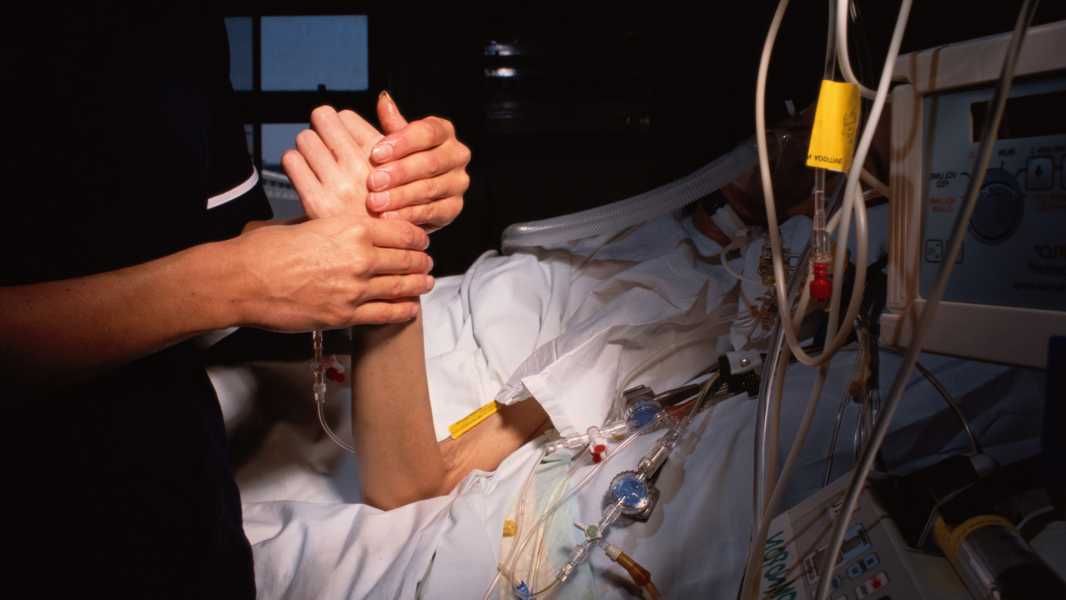
Normally, the brain has “braking mechanisms” that filter most aspects of its functioning from our conscious experience. (Image credit: Henry King via Getty Images)
What happens when we actually die—when the heart stops beating and all electrical activity in our brain “freezes”?
People have been asking this question for ages. It is not an easy task, since the dead are usually unable to report their experiences. Religious texts can offer many explanations. However, scientists are also seeking to provide their own versions of the answers and are making strides toward a deeper understanding of the brain's transition from life to death.
More recently, this was possible thanks to a study that looked at the brains of people who were dying. Some of these people were able to share their experiences. According to findings published Sept. 14 in the journal Resuscitation, some patients who had suffered cardiac arrest experienced a surge in brain activity during CPR, even though their hearts had been stopped for an hour. A small group of survivors were able to recall the experience, and one person was able to identify the beeping sound that was playing as doctors tried to revive them.
The researchers interpret the brain recordings from these patients as markers of “clear, remembered death experiences” — an observation that “has never been possible before,” notes lead author Dr. Sam Parnia, an assistant professor of medicine at NYU Langone Health and an experienced researcher into what happens to people at the moment of death. “We were also able to offer a consistent, mechanistic explanation for why this happens.”
“Death memories” — a term Parnia prefers to use instead of “near-death experiences” for the sake of accuracy — have been reported in various cultures throughout recorded history. Some Western scientists previously dismissed such accounts as hallucinations or dreams, but recently several research groups have begun to take these phenomena more seriously as a way to study consciousness and illuminate the mysteries of death.
In the new study, Parnia and his colleagues sought to find biological signatures of near-death memories. They teamed up with 25 hospitals, mostly in the U.S. and U.K., to study how people learned to remember death. Medical staff used portable devices that could be placed on the heads of heart failure patients to measure their brain oxygen levels and electrical activity without interfering with their medical treatment. The researchers also studied conscious and unconscious perception using headphones that played the names of three fruits over and over: banana, pear, and apple. In terms of unconscious learning, even if a person doesn’t remember hearing the names, they can respond correctly when asked to “casually think of three fruits,” Parnia says. Previous research has shown that even people in deep comas can unconsciously remember the names of fruits or cities if the words are whispered in their ear.
Between May 2017 and March 2020, 567 people suffered cardiac arrest at participating hospitals. Medical staff were able to collect usable data on brain oxygen levels and activity from 53 of these patients, most of whom showed a flat-line electrical state on electroencephalographic (EEG) monitors. However, about 40% of them then experienced electrical activity that at some point resumed with normal or near-normal brain waves consistent with a conscious state. This activity sometimes returned up to 60 minutes after CPR.
Of the 567 patients, only 53 survived. The researchers interviewed 28 survivors. They also surveyed 126 community members who had suffered cardiac arrest, since the sample of survivors in the new study was so small. Nearly 40 percent reported some perception of the event, with no specific associated memories, while 20 percent said they had memories of the death experience. Many of the latter group described the event as a “moral evaluation” of “their entire lives and how they’ve behaved,” Parnia says.
During interviews with survivors, the researchers found that only one person could recall the names of the fruits that were played during CPR. Parnia admitted
Sourse: www.livescience.com





